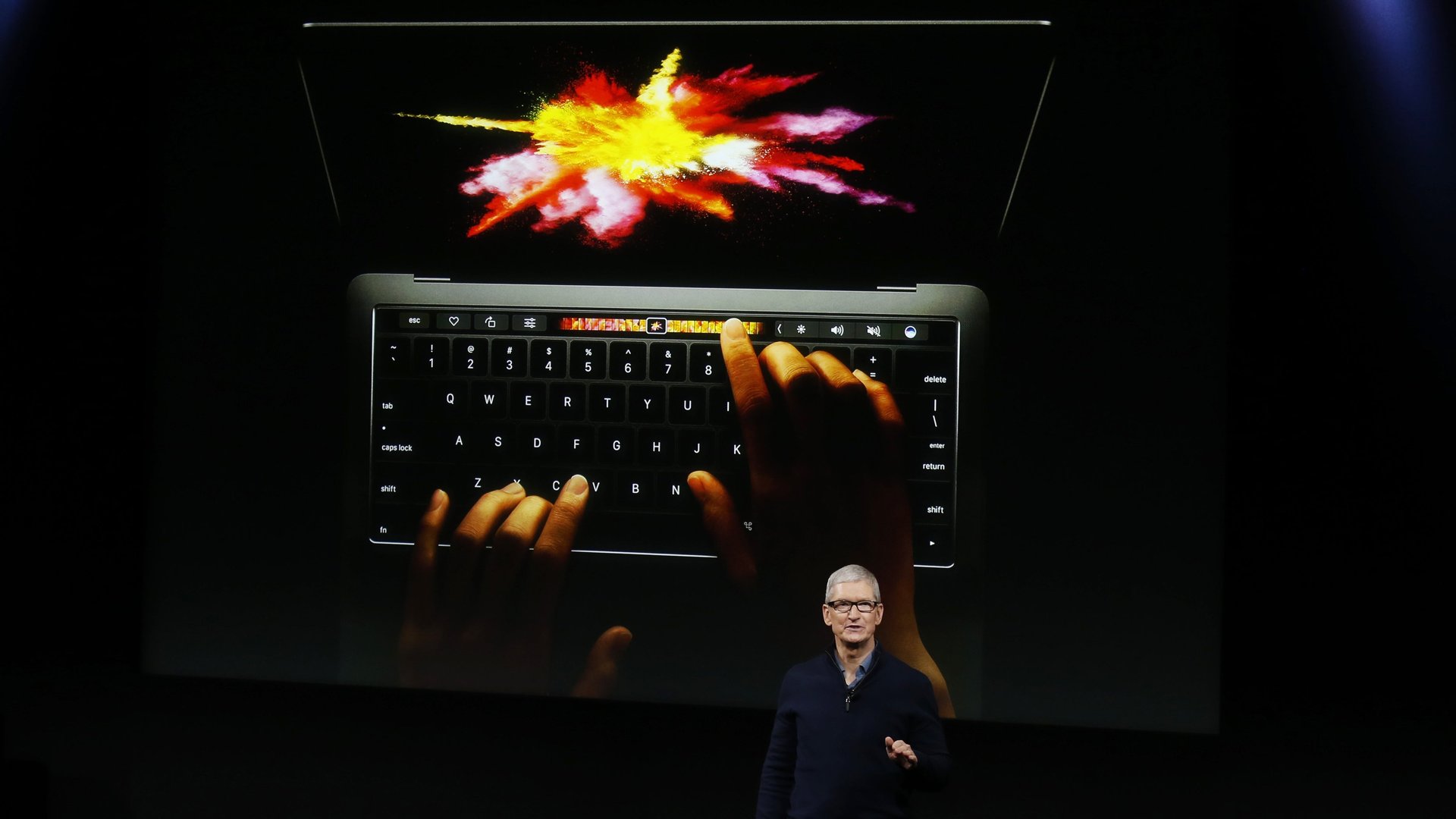Consumer Reports changed its mind about Apple’s new laptops
Nothing to see here.


Nothing to see here.
Just before Christmas, Consumer Reports, the US’ preeminent product-testing organization, announced that it would not be recommending Apple’s new MacBook Pros, a first for the tech giant’s laptops. Although it characterized them as generally good, inconsistencies in the Pros’ battery life proved too serious for Consumer Reports to overlook.
Apple looked into the issue over the holidays, and provided Consumer Reports with updated software on Jan. 9. Three days later, the organization said it had retested the laptops and changed its mind; it now recommends the new MacBooks to American buyers.
According to Apple, the issue came down to the specific way Consumer Reports tests laptops, which the average user would apparently never experience. As an Apple spokesperson put it to Quartz:
We learned that when testing battery life on Mac notebooks, Consumer Reports uses a hidden Safari setting for developing websites, which turns off the browser cache. This is not a setting used by customers and does not reflect real-world usage. Their use of this developer setting also triggered an obscure and intermittent bug reloading icons, which created inconsistent results in their lab. After we asked Consumer Reports to run the same test using normal user settings, they told us their MacBook Pro systems consistently delivered the expected battery life. We have also fixed the bug uncovered in this test.
That bug has been fixed in a new version of Apple’s macOS operating system, now available to Mac owners through Apple’s beta-testing program. It’s unclear when the software will be rolled out in an official update.
During its original testing, Consumer Reports experienced MacBook Pro battery life ranging from 4.5 hours to 20 hours on some models (the laptops are supposed to get around 10 hours of use on a single charge). On Jan. 12, it said new tests had yielded average battery-life results of 15.75 hours, 18.75 hours, and 17.25 hours.
So after a brief hiccup, Apple’s streak of Consumer Reports laptop recommendations continues unbroken. Whether the switch-up will actually convince consumers remains to be seen. Early indications of the new Pro’s performance are expected at Apple’s quarterly earnings call on Jan. 31, but it’ll likely take another quarter still to get a sense of the laptops’ staying power.